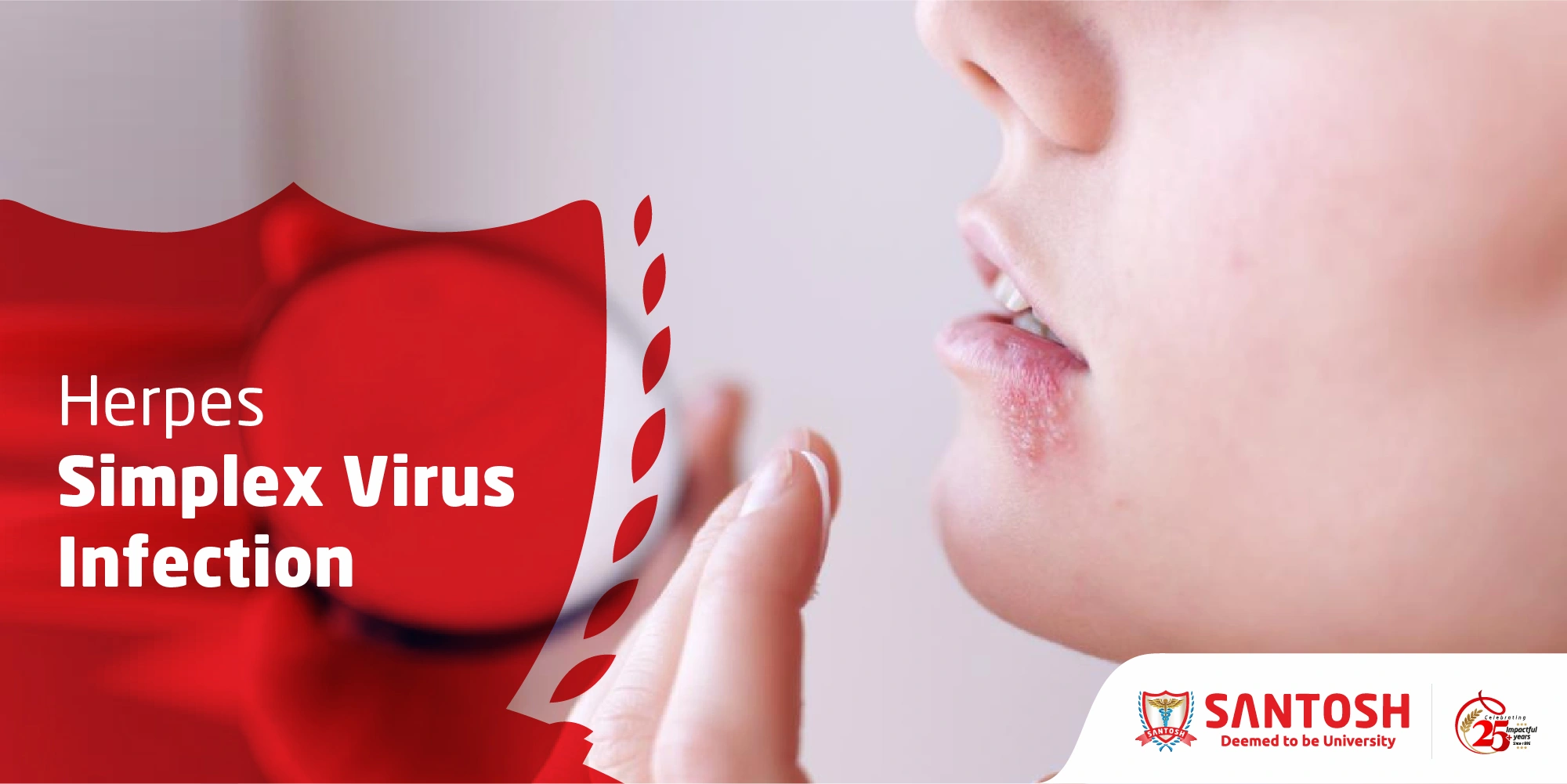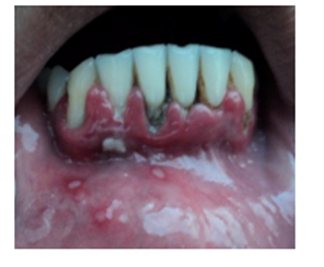
Herpes is caused by Herpes simplex virus (HSV).HSV-1causes orofacial and genital infections.HSV-2 causes primarily genital infections. Transmission of HSV infections most frequently occurs through close contact with a person who is shedding virus at a peripheral site, at a mucosal surface, or in genital or oral secretions.Infection occurs by inoculation of virus onto susceptible mucosal surfaces(e.g. Oropharynx, cervix, conjunctivae) or through small cracks in the skin. Because HSV is readily inactivated at room temperature and by drying, aerosol and fomite spread are unusual means of transmission .Transmission of HSV-1 from orogenital contact is increasingly recognized, perhaps because of a decrease in the age-specific prevalence of HSV-1 at the time of sexual activity starts.
HSV infection causes several distinct medical disorders. Common infection of the skin or mucosa may affect the face and mouth (orofacial herpes), genitalia (genital herpes),or hands (herpetic whitlow).More serious disorders occur when the virus infects and damage the eyes(herpes keratitis),or invades the central nervous system, damaging the brain(herpes encephalitis).People with immature or suppressed immune systems, such as newborns, transplant recipients, or people with AIDS, are prone to severe complications from HSV infections. HSV infection has also been associated with cognitive deficit of bipolar disorder, and Alzheimer‟s disease, although this often dependent on the genetics of the infected person.
Primary orofacial herpes is readily identified by clinical examination of persons with no previous history of lesions and contact with an individual with known HSV-1 infection. The appearance and distribution of sores in these individuals typically presents as multiple, round, superficial oral ulcers accompanied by acute gingivitis.

No method eradicates herpes virus from the body, but antiviral medications can reduce the frequency, duration and severity of outbreaks. Analgesics such as ibuprofen and paracetamol (acetaminophen) can reduce pain and fever. Topical anesthetic treatment such as prilocaine, lidocaine, benzocaine, or tetracaine can also relieve itching and pain . Several antiviral drugs are effective for treating herpes, including acyclovir, valaciclovir (valacyclovir),famiciclovir,andpenciclovir.Acyclovir was the first discovered and is now available in generic.Evidence supports the use of acyclovir and valacyclovir in the treatment of herpes labialis as well as herpes infections in people with cancer.The evidence to support the use of acyclovir in primary herpetic gingivostomatitis is weaker.Numerous trials of acyclovir in mucocutaneous HSV infections of the immunocompetent and immunosuppressed hosts have been conducted . Famciclovir, the oral formulation penciclovir,is also clinically effective in the treatment of a variety of HSV-1 and HSV-2 infections . Herpes simplex virus(HSV) infections are prevalent worldwide.HSV-1 causes mainly mouth, throat, face, eye, and central nervous system infections,HSV-2 causes primarily genital infections. Recurrent outbreaks are common especially among immunosuppressed persons.Prevention by use of condomand antiviral drugs.
For More Info, Visit: https://www.santosh.ac.in/

